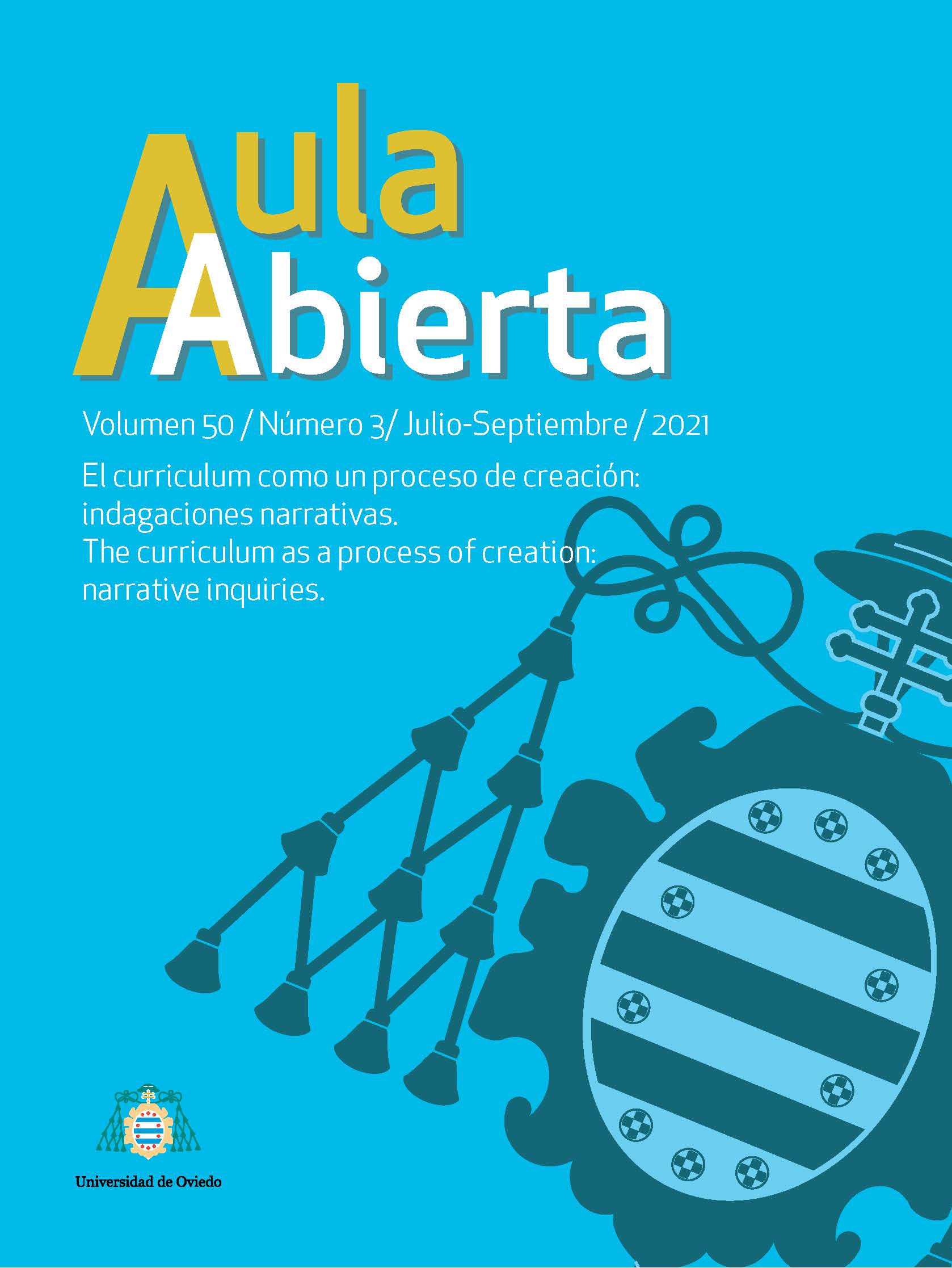Resumen
Este artículo compone la historia curricular de una experiencia de acompañamiento en un aula de Educación Primaria. La historia se centra en el discurrir de la tertulia literaria, que es la forma pedagógica con que esta maestra abre un tiempo para leer y conversar juntos en clase. Una historia que va entrelazándose con las historias que la anteceden y, a su vez, con nuevas historias que emergen a partir de ella. El artículo estructura una temporalidad que recorre longitudinalmente la trama narrativa de esta experiencia educativa mostrando, en su recorrido y de forma narrativa, los cambios, las invenciones y los desbordamientos que se van aconteciendo. Acercándonos a un modo de vivir el currículum como un plan que se va componiendo y co-componiendo en el propio proceso de enseñar y aprender.
Citas
Anzaldúa, G. (2016). Borderlands-La frontera. Capitán Swing.
Bellamy, F.X. (2018). Los desheredados. Por qué es urgente transmitir la cultura. Encuentro.
Biesta, G. (2017). El bello riesgo de educar. SM
Clandinin, D.J. (2015). Stories to live by on the professional knowledge landscape. Waikato Journal of Education, Special 20th Anniversary Collection 2015,183-194. doi: 10.15663/wje.v5i0.403.
Contreras, J. y Quiles-Fernández, E. (2017). Vivir y profundizar experiencias de enseñanza desde una perspectiva narrativa. En Contreras, J. (ed.). Enseñar tejiendo relaciones (pp.19-34). Morata.
Coscollà, I. (2016). Pràctiques que ajuden a construir la relació educativa. Guix. Elements d’Acció Educactiva, 421, 55-59.
Díez, M.C. (2015). Los pendientes de la maestra. Graó.
Garcés, M. (2020). Escuela de aprendices. Galaxia Gutenberg.
Larrosa, J. (2018). Con P de Profesor. Noveduc.
Larrosa, J. (2019). Esperando no se sabe qué. Sobre el oficio de profesor. Candaya.
Lopez, A. y Gabbarini, P. (2016). Hacia una epistemología vulnerable. En Contreras, J. (comp.). Tensiones fructíferas: explorando el saber pedagógico en la formación del profesorado. Una mirada desde la experiencia. Octaedro.
Meirieu, P. (2007). Frankestein educador. Laertes.
Molina, M.D. (2018). Enseñar y aprender, la poética de la presencia en un aula de primaria: un estudio narrativo. Revista Educaçao UFSM, 43(2), 179-194. DOI: 10.5902/198464443211
Olson, M. (2000). Curriculum as a Multistoried Process. Canadian Journal of Education, 25(3), 169-187.
Parker, D.C, Pushor, D. y Kitchen, J. (2011). Narrative Inquiry, Curriculum Making, and Teacher Education. En Kitchen, J., Parker, D.C. y Pushor, D. (Eds.), Narrative Inquiries into Curriculum Making in Teacher Education (pp.3-18). Emerald Group Publishing Limited.
Petit, M. (2015). Leer el mundo. Experiencias actuales de transmisión cultural. Fondo de Cultura Económica.
Punta, T. (2013). Señales de vida. Bitácora de una escuela. Lugar Editorial.
Punta, T. (2019). Mundo escuela. Didácticas de equidad e inclusión. Paidós Educación.
Recalcati, M. (2016). La hora de clase. Por una erótica de la enseñanza. Anagrama.
Simons, M. y Masschelein, J. (2014). Defensa de la escuela. Una cuestión pública. Miño y Dávila.
Van Manen, M. (2004). El tono en la enseñanza. El lenguaje de la pedagogía. Paidós.

Esta obra está bajo una licencia internacional Creative Commons Atribución-NoComercial-SinDerivadas 4.0.
Derechos de autor 2021 Aula Abierta





